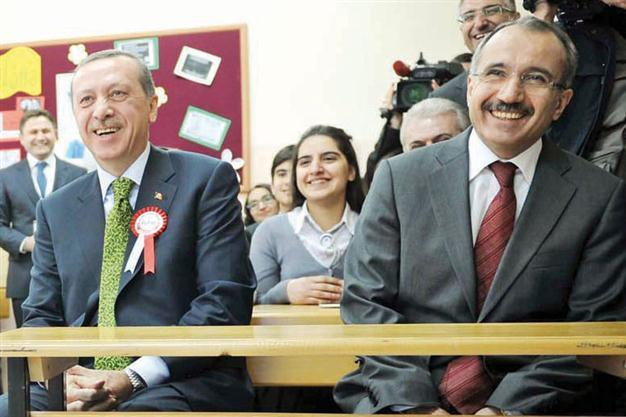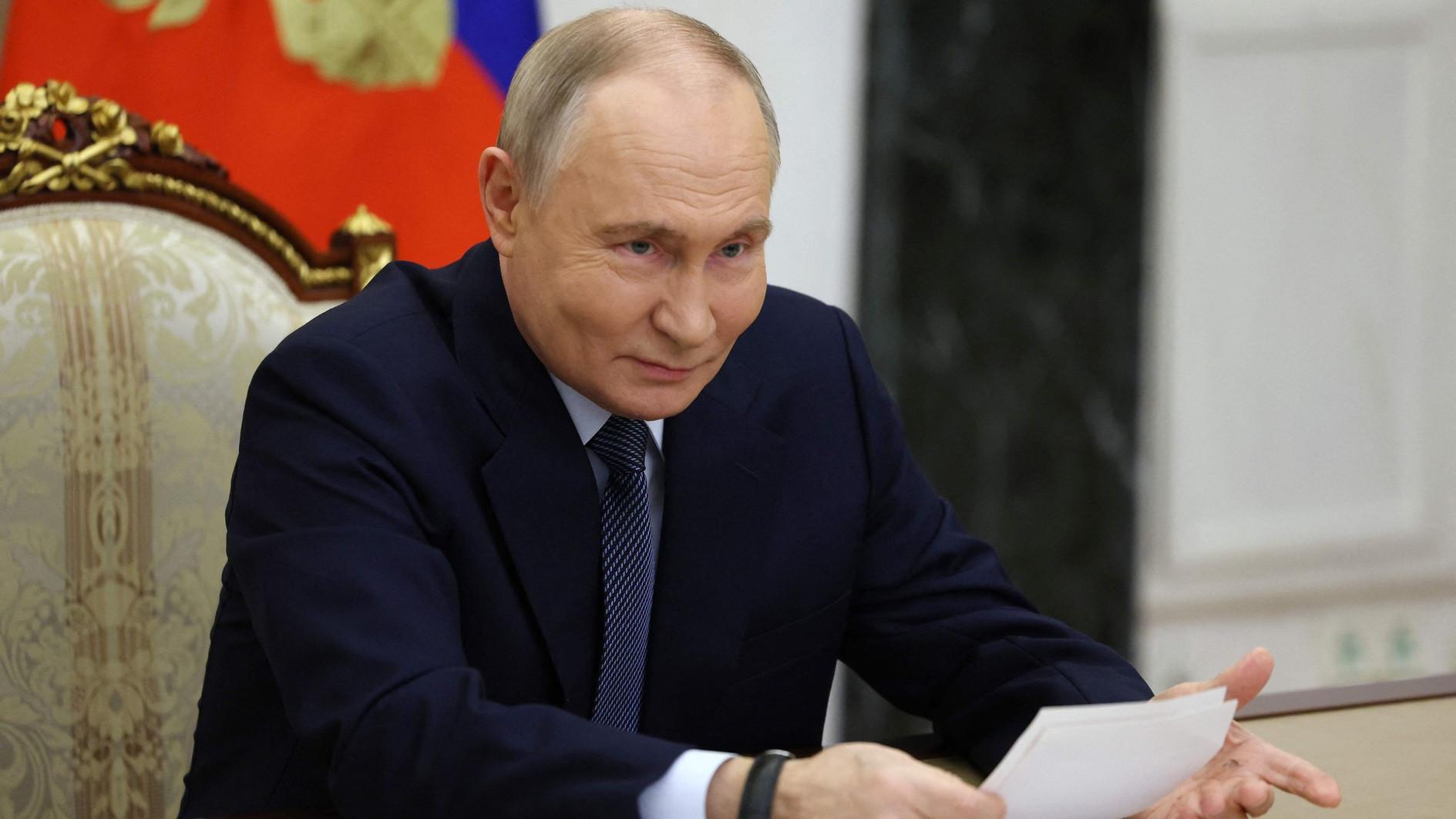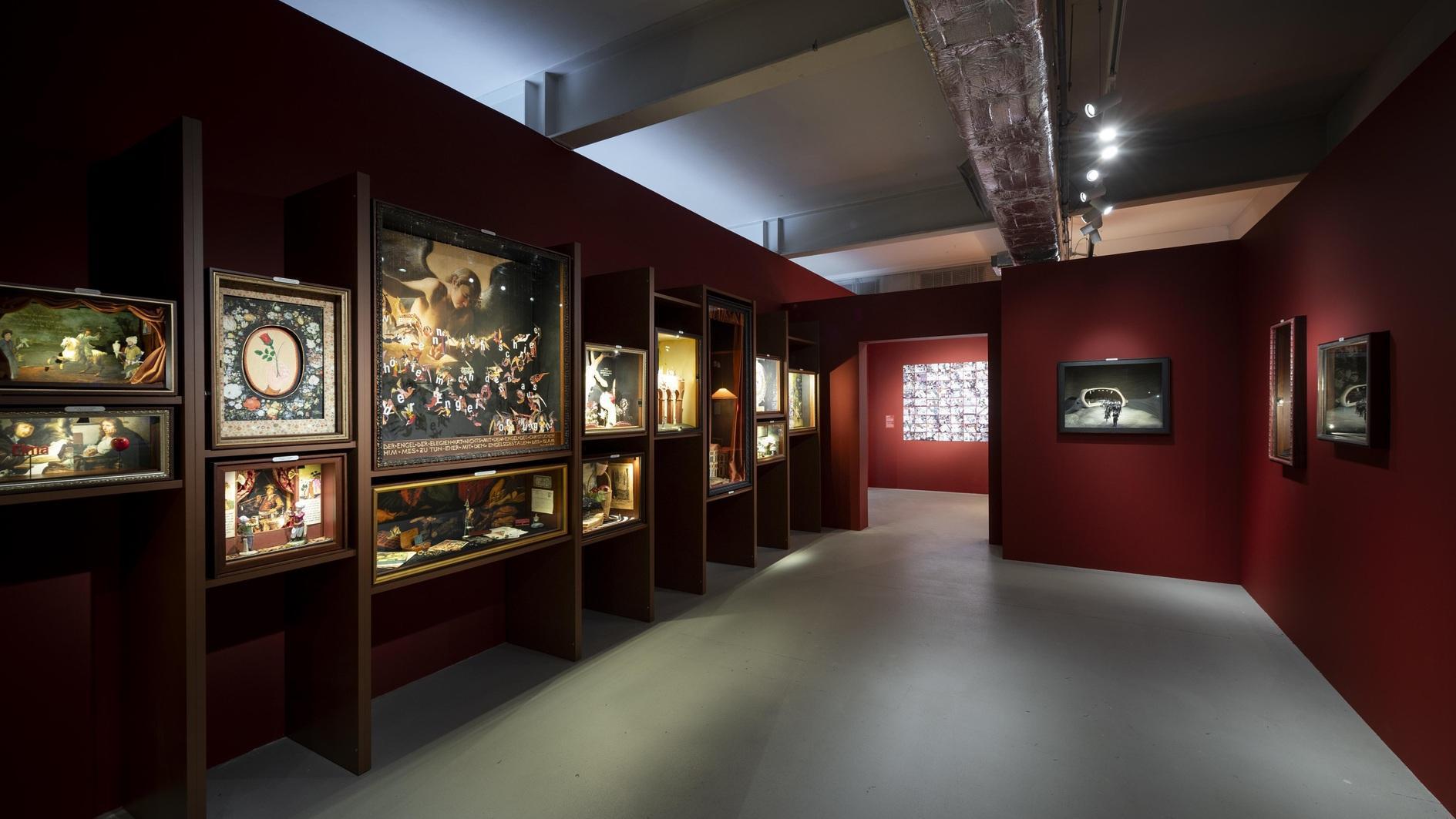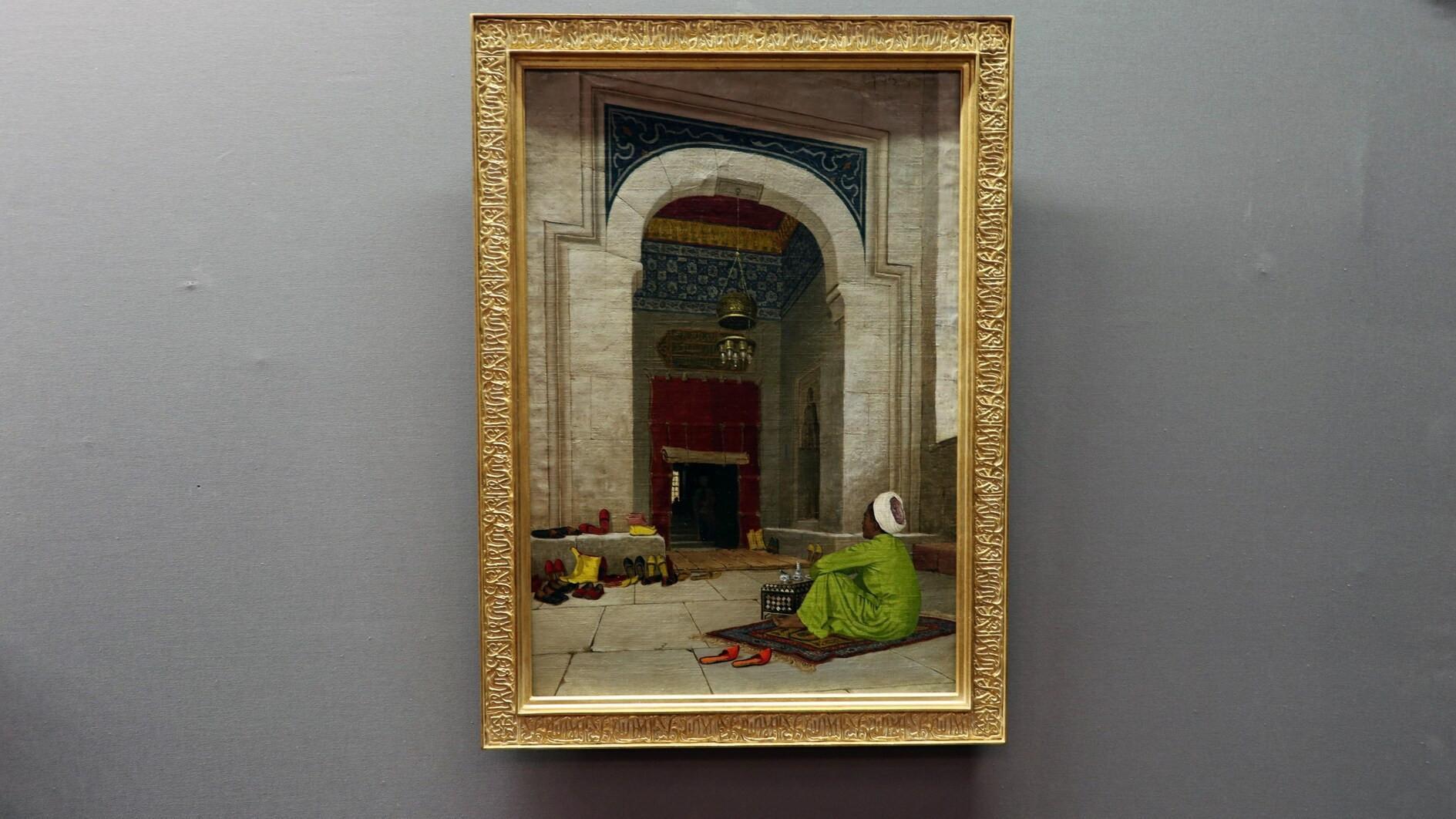Minister considers selling smart boards
ANKARA - Hürriyet Daily News

Prime Minister Erdoğan (L) and Minister Dinçer (R) visit a classroom in Ankara. AA photo
Turkey is planning to export smart boards it developed as part of its FATIH education project to world markets, the education minister told Ankara bureau chiefs at a briefing yesterday, claiming the system produced by national means was much more advanced than the ones used in Japan, Canada and the United States.“Vestel will begin mass production of these smarts boards in May and we will adorn all our classrooms throughout the country in four years’ time,” Minister Ömer Dinçer said. Turkey has around 577,000 classrooms in 81 provinces, he said.
The Turkish Education Ministry recently launched the Movement of Enhancing Opportunities and Improving Technology (FATIH) project, which will bring about the “smart class” concept to more than 40,000 schools adorned with smart board and tablets distributed to students in the fifth and higher grades free of charge. Under this system, the textbooks will be replaced by e-curriculum and an online connection between students and their instructors will be established thanks to the high-speed Internet connectivity.
“We will use more advanced technology and in a more widespread and effective way than the other countries implementing similar technological education,” Dinçer said.
“This smart board designed and produced by national means after mutual works of ministries of education, industry, transportation, development and economy. We have also received its patent rights,” he said, adding that the Vestel, a Turkish technology production company, will develop a production in two or three months’ time. “Thus it would turn into a good that we can export,” Dinçer said, without elaborating which countries could be potential buyers. “Exporting the smart boards is not our job; the producer will decide on it.”
$8 billion needed
Although the project was very new and has been tested in only a few provinces, the minister said the initial feedback from students, instructors and parents was very positive. “Two months later we’ll conduct a comprehensive survey to better see the implementation and the weak points of the system to fix them,” he said.
Oğuz Temizhan, a senior ministry official responsible for technological infrastructure, said the smart boards Turkey has produced could be used for up to 10 years and were saving three times more energy than other boards used in the world.
According to the information given by Temizhan, the smart boards can be easily updated or renewed and were very user-friendly. In addition, contrary to other boards there was no need of a special board marker to write on its screen as instructors can even use their fingers to draw or write on it.
Everything written on the board can be saved and easily sent to the emails of the students, he stated, adding the boards had specially written software.
Minister Dinçer said the cost of the entire project was around $8 billion, but this could be reduced depending on the reduction of technological components of the system. A smart board costs around 4,000 Turkish Liras and a tablet is between 600 and 800 liras.
“If Turkey is aiming at becoming one of the top 10 developed countries, then it requires a stepping stone. The FATIH project will serve as a stepping stone for Turkey,” Dinçer said.
















